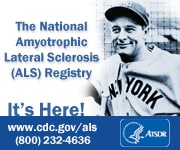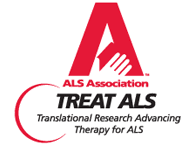Those involved with ALS research repeatedly make the point that the goal of getting effective treatments for ALS is directly a function of the amount of funding for ALS research. I've followed, off-and-on, both ALS research and ALS advocacy, since around 1981 and have seen far too many false starts and false promises, while during the same period, a disease like Aids has gone from being unknown to having very good treatments. So given this, I’d like to throw out the following suggestion for what I think would be effective advocacy:
Every year in May the ALS Association has Advocacy day in D.C. and lobbies Congressional offices (Congress is usually out of session during this time in my experience). While over the years they have advocated for some good and needed legislation, when it comes to any significant funding SPECIFICALLY for ALS, they have been very timid - nothing approaching what is needed or commensurate with a horrible disease like this with no real treatments whatsoever. So I propose that during ALS advocacy day in May, when many PALS and CALS will be in D.C. for this, that a protest demonstration be organized to DEMAND (not ask) MUCH greater federal funding dedicated to ALS research (which has always been disproportionately underfunded).
The Obama administration is pouring a lot of new money into the NIH for research, including through the just-passed stimulus package. I see no reason why ALS shouldn’t demand and get its fair share. But without a real advocacy push, I guarantee that ALS will, at best, just get some small increase, probably proportionate to the overall increase in funding (which likely wouldn’t even offset the decrease in inflation-adjusted funding that has occurred over the past few years).
Having observed and participated in protests, marches and other advocacy in the Nation’s Capitol for some decades now, I have seen the effectiveness of even small groups of protestors on the Capitol steps and other actions. The early disability advocates - most in wheelchairs - did this with great effect decades ago; to get laws and policies changed, leading up to the Americans with Disabilities Act. And the militant tactics of the early AIDS activists (groups like ACT UP) garnered attention and ultimately catalyzed public and private support for AIDS, at levels far beyond any justified on the basis of any medical, scientific or rational criteria. Following their lead, more militant Breast Cancer Activists blocked entrances on the Capitol, chanting that it was UNACCEPTABLE for breast cancer to be killing women; leading to funding increases that jumped many times in a short period of time. With somewhat less success, Prostate cancer advocates followed suit.
Not that this is the most rational or equitable way to make funding decisions, but this is how the game is played - more politics than science or medicine. Also, do not forget that in the early 80's, militant AIDS activists who disrupted board meetings were not exactly a sympathetic group, unlike PALS, who would certainly be seen this way by the media and the public. And yet those early AIDS militants were damn effective in forcing both policy changes in drug studies, etc. and, of course, in convincing the government to pour massive amounts of funding into AIDS research.
And yet, over the 28 years I’ve followed ALS advocacy, except for the March of Faces (do they even still exist?) demonstrations outside of the FDA office to maintain access to Myotrophin in the 90s, I’ve not seen any comparable militant or effective ALS advocacy - at least in terms of affecting federal funding. The MDA even shunned asking for federal funding for decades, until just a few years ago, even though the federal government is by far the biggest funder and potential funder of medical research, especially at a time like this, when private funding sources are generally not in much shape to be shelling out dollars for anything.
So what do people say? Mid May is coming up fast, but with organizing over the internet it should be possible to put together an effective protest/demonstration; one which might draw on many of the PALS and CALS who will already be in town for ALS Advocacy day. By now, it should be clear that doing the same things the same old way has simply produced the same old results, which in this case has meant the same basic, anemic level of funding for ALS, even as the cost of research has usually gone up faster than inflation, meaning that the same level of funding is really a decrease in real dollars.
I’ve heard the arguments against such actions, but don’t buy them for the most part. If most PALS are too sick or otherwise unable to attend such an event, there are CALS, family member and friends of CALS and all of the above for PALS no longer with us. All told, there must be hundreds of thousands of persons in the U.S. who know, knew or have been affected by ALS, directly or indirectly. And for such advocacy, large numbers, while always nice, are not as necessary. If half those who come every year for ALS advocacy day participated, that probably would be sufficient to gain the crucial media attention and force Congresspersons to go on the record, making some statement. Plus, there are a fair number of people who worry they may have ALS, not to mention some number who have related motor neuron disorders or similar one’s, like Multifocal Motor Neuropathy - all of whom could be invited to join in.
BTW, I recently heard the Governor of South Carolina, Mark Sanford, mention that his father had ALS, so maybe he could be a champion.
Thanks for reading
Hopeseeker
















